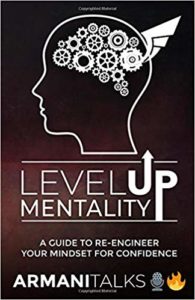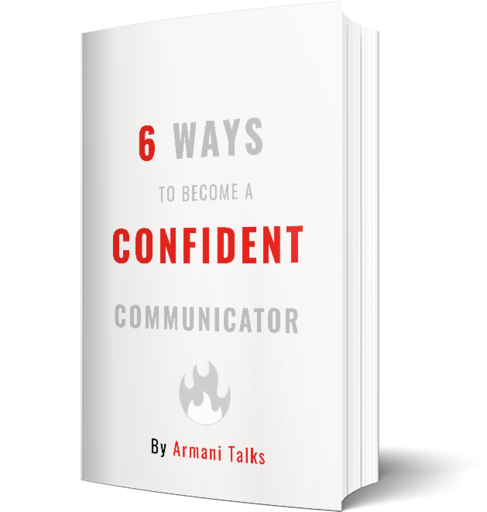What is a Theme and How Can You Create One?
What came first, the theme or the words?
- Different writers have different strategies.
Some writers simply begin writing.
They have the mindset of:
‘If a theme presents itself, then it presents itself.’
Other writers have the perspective of:
‘I don’t begin writing the words until I have a theme in mind!’
The theme is the essence of the message.
What is the talk about?
Where words are visible, the theme is invisible.
It’s a subjective interpretation.
Creating a Theme
A simple way to cut through the bs and create a theme is to ask:
‘What is the gist of this talk?’
We don’t need to be too specific.
When identifying a theme, it’s better to be general.
R.L. Stine, the author of the Goosebumps series, used to think of the titles of his books first.
Once he got the title, then he would write the book.
That’s an unorthodox strategy.
Most authors write the manuscript first and slap on a title later.
Why did R.L. Stine start off with the title?
Because if you look closely, he is answering the question:
‘What is the gist of this talk?’
When he creates a title:
- “Night of the Living Dummy”
His mind automatically begins to get an idea of what the story is about.
Once he has an idea of what the story is about, he can determine which words to use.
A Revealing Theme
You may have created a story with a certain theme in mind, but the consumer interpreted a radically different theme.
Here’s another thing that happens…
Every now and then, you initially had a certain theme in mind as you began creating your story.
But as you begin creating, you saw a deeper theme emerging.
Let me tell you about a time that happened to me.
One evening, I wrote a newsletter about the time I tried to learn to skateboard.
My skateboard teacher was a kid named Billy.
Initially, Billy taught me to skateboard on the grass rather than the hard pavement.
Starting off on grass allowed me to work on the micro-muscles which would allow me to balance on the streets.
After practicing on the grass for a while, I got cocky.
I felt since I could ride on the grass that I knew how to skateboard.
I began telling the other kids in my neighborhood that I could skateboard.
When Billy would ask me to do certain drills, I’d shoo him away.
One day, Billy decided it was time for me to skateboard on the streets.
No more grass.
I got my skateboard and put it on the bumpy streets.
All I had to do were the beginner moves that Billy had been teaching me.
But rather than do the basics, I did an obnoxious trick.
Suddenly, I lost my balance and fell on my ass.
Man down!!
Billy smirked as he helped me up.
His smirk signaled:
‘Welcome back to Earth, Armani.’
Initially, the gist of the talk was:
‘Talk about your first-time learning to skateboard.’
But after reading back the piece, I was presented a different theme:
‘Just because you can ride on the grass doesn’t mean that you can ride on the streets.’
Translation:
‘Riding a skateboard on the grass was equivalent to knowing the theory while riding a skateboard on the streets was practical experience.’
One of the guys who read that story emailed me:
‘I’ve been in analysis paralysis for some time with this career transition. Your story helped me realize that I need to pull the trigger.’
I guess for him, he had been figuratively skateboarding on the grasses of his safe job.
Now was the time to hit the streets and begin applying for roles that challenged him.
Where I got the theme of spotting the difference between theory & experience, this reader got the theme of betting on himself.
You may set out to showcase one theme but find yourself showcasing a completely different theme.
Spotting the Invisible
If you can spot the theme within other people’s content pieces, then you will skyrocket your storytelling skills.
Unfortunately, a lot of people watch content in a passive way.
They never aim to spot the deeper meaning.
Be different.
Be active.
Every now and then, ask:
‘What is the director really trying to tell me?’
Imagine the following…
You are a detective who has befriended a criminal.
The criminal slowly begins to suspect that you are a detective.
Rather than tell you about his sinister plans, he is on his best behavior around you.
He wants to mislead you.
When he says:
‘I’m going to go home and sleep .’
You nod and pretend like you believe him.
But you follow him anyways to see where he’s really going.
Why are you giving the criminal the “guilty till innocent” treatment?
Because he’s a damn criminal!!
You want to have a similar mindset when consuming content.
Assume the director is intentionally being coy.
The director thinks that if you quickly know the theme, then you’ll stop consuming the story.
So, he wants to keep you on your toes.
He wants to mislead you like the criminal.
When you give the director the “guilty till innocent” treatment, you get suspicious.
When you get suspicious, your observation prowess increases.
What is the Lesson?
Have you ever angrily told someone:
‘You missed the point!!’
What did that mean?
Translation:
‘You missed the idea that I was trying to convey!!’
Very few people understand what the theme is.
Because the theme is an abstract concept.
To make it even more difficult to perceive, different people have different takeaways regarding the same content piece.
Luckily, the more that you create, the more you build a sensitivity toward spotting the underlying idea behind content pieces.
The words are visible, but the theme is invisible.
It takes work to perceive the invisible.






